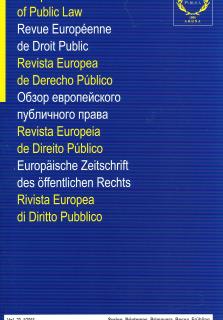
Global Administrative Order
A Lithuanian Perspective
The concept of global administrative order is a new concept in Lithuania. In Lithuania’s legal doctrine, administrative law is connected with the national institutions and global legal acts are more associated with international law, these two branches of law being traditionally seen as separate systems. The legal order that is imposed to Lithuania by its international commitments has not been recognised as a separate subject and consequently has not been summarised and categorised yet. The principles, regulations, decisions, recommendations etc. adopted by the actors of global administrative space usually are a part of Lithuanian administrative legal order only if they are acknowledged in Lithuanian laws. Global cooperation is a common and unavoidable practice in Lithuania and can be deduced from the Constitution of the Republic of Lithuania and its legal acts. Research in the fields of environment, health, employment and financial sector reveals that Lithuanian national legal order is notably affected by globalisation; however, this fact is not admitted or understood appropriately by the authorities and the administrative institutions. On the contrary, certain cases reveal a turn to nationalisation. However, if the states care about the future, they cannot stay nationalised anymore; only a new global order could help solve the problems humankind will face in the forthcoming decades.





















